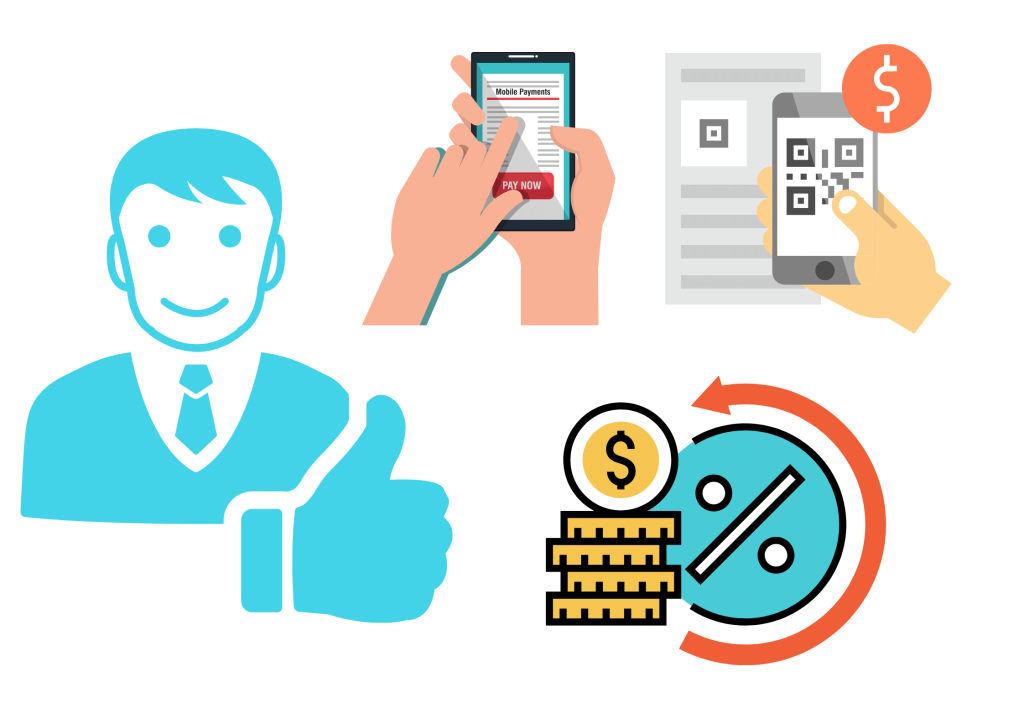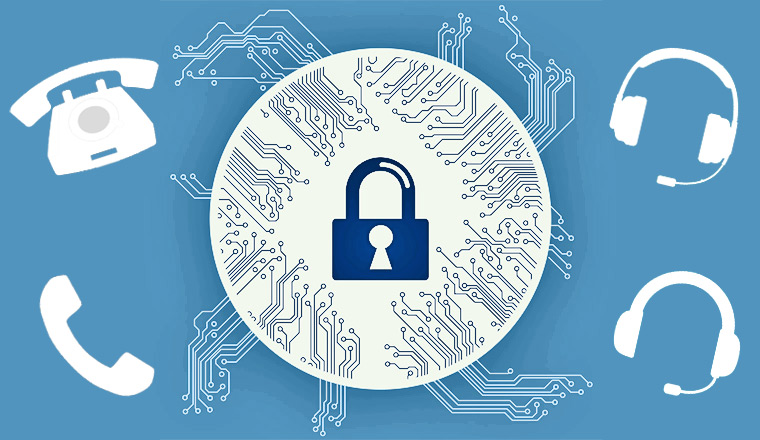One technology that every lawyer should consider is Voice over IP (VoIP). VoIP is a phone system that operates over the internet, providing numerous benefits for the legal industry. In this article, we will explore the advantages of VoIP for lawyers and why it is worth considering a switch to this innovative technology.
Key Takeaways:
- VoIP allows lawyers to connect and communicate with clients from anywhere, thanks to its portability and remote access capabilities.
- Switching to VoIP can result in cost savings for law firms, with low monthly per-user fees and additional features included in the service.
- VoIP offers increased accessibility and scalability, allowing lawyers to access phone lines and features even when they are out of the office and easily add new users to the system.
- By integrating easily with existing systems and enabling simplified video conferencing, VoIP enhances collaboration and communication among legal professionals.
- VoIP provides improved sound quality and enhanced security through encryption and identity management.
By considering a switch to VoIP technology, lawyers can benefit from increased flexibility, cost savings, enhanced features, and improved communication capabilities. Embracing VoIP can help modernize law practices and streamline client communication, ultimately leading to more efficient legal services.
The Advantages of VoIP for Lawyers

Switching to VoIP can revolutionize the way lawyers communicate, providing numerous advantages for law firms of all sizes. One of the primary benefits of VoIP phone systems is their portability and remote access capabilities. Unlike traditional landline phones, VoIP operates over the internet, allowing lawyers to connect and communicate with clients wherever they are. As long as there is an internet connection, the service can be accessed from anywhere, making it particularly beneficial for lawyers who work remotely or travel frequently.
Another advantage of VoIP for lawyers is the potential cost savings it offers. Traditional phone services often charge additional fees for technician visits to fix faulty lines, whereas VoIP systems have a low monthly per-user fee. Additionally, cloud-based VoIP services provide features such as call queues and voicemail, which are often not available or are expensive on landline systems.
VoIP technology also provides increased accessibility and scalability for law firms. Calls can be made from anywhere in the world, allowing lawyers to access work phone lines and features even when they are out of the office. Adding new users to a VoIP system is easy and doesn’t require purchasing additional lines or dedicated software.
Furthermore, VoIP integrates easily with existing business systems and allows for simplified video conferencing, making it convenient to share media during important meetings or client calls. The sound quality of VoIP calls is better compared to traditional phones, and the technology offers increased security through encryption and identity management.
Portability and Remote Access
A significant advantage that VoIP offers to lawyers is its complete portability and remote access capabilities. With VoIP phone systems, lawyers can stay connected and work from anywhere, as long as there is an internet connection available. This is particularly beneficial for lawyers who work remotely or travel frequently, as they can easily access their work phone lines and features on their mobile devices or laptops.
Unlike traditional landline phones, which are tied to a specific location and require physical wiring, VoIP operates over the internet. This means that lawyers can make and receive calls from their office phone numbers even when they are out of the office. Whether they are at home, at a client’s site, or on the go, they can stay connected with their clients and colleagues seamlessly.
Additionally, VoIP allows for easy access to voicemail and call forwarding features, ensuring that lawyers never miss an important call or message. The ability to forward calls to mobile devices or other phone numbers provides flexibility and ensures that clients can always reach their lawyers when needed.
Table 1: Comparison of Portability and Accessibility Features
| Features | Traditional Landline | VoIP |
|---|---|---|
| Portability | Restricted to a specific location | Accessible from anywhere with an internet connection |
| Remote Access | Not available | Can be accessed using mobile devices or laptops |
| Call Forwarding | Limited options | Flexible call forwarding to mobile devices or other phone numbers |
In conclusion, the portability and remote access capabilities of VoIP technology make it the ideal choice for lawyers who value flexibility and want to stay connected with their clients and colleagues at all times. Whether working from the office, home, or on the go, VoIP ensures that lawyers can maintain professional communication and accessibility, enhancing productivity and efficiency.
Cost Savings
In addition to its many features, VoIP can also result in substantial cost savings for law firms. Traditional phone services often charge additional fees for technician visits to fix faulty lines, whereas VoIP systems have a low monthly per-user fee. This eliminates the need for expensive maintenance and repair costs associated with traditional landline phones.
Furthermore, a cloud-based VoIP service offers features such as call queues and voicemail, which are often not available or are expensive on landline systems. This eliminates the need for separate voicemail services and reduces overall costs for law firms.

VoIP technology not only provides enhanced features but also offers scalability, making it an ideal choice for law firms of all sizes. With VoIP phone systems for lawyers, law firms can take advantage of advanced features that are specifically tailored to their needs. These features include call forwarding, auto-attendants, and conference calling, which can greatly improve efficiency and streamline communication within the firm.
One of the key advantages of VoIP is its scalability. Traditional landline systems require the installation of additional lines and hardware when the firm expands. This can be costly and time-consuming. However, with VoIP, adding new users or expanding the system is as simple as activating new accounts and connecting new devices to the existing network. This flexibility allows law firms to grow and adapt without the hassle and expense of traditional phone systems.
Additionally, VoIP systems offer integration with other business tools and software, further enhancing the capabilities of the technology. For example, VoIP can easily integrate with customer relationship management (CRM) systems, allowing lawyers to access client information and call logs directly from their phones. This integration streamlines workflows and improves productivity by eliminating the need for manual data entry and reducing the risk of errors.
To summarize, law firm VoIP solutions offer enhanced features, scalability, and integration options that can greatly benefit legal professionals. Whether it’s improving client communication, reducing costs, or increasing efficiency, VoIP technology provides a powerful solution for modern law practices.
| Benefits of VoIP for Law Firms: |
|---|
| Enhanced features tailored to the needs of law firms |
| Scalability, allowing for easy expansion as the firm grows |
| Integration with other business tools and software |
| Improved client communication and collaboration |
| Cost savings compared to traditional phone systems |
| Increased flexibility and accessibility |
Integration and Simplified Video Conferencing
VoIP technology seamlessly integrates with existing business systems and simplifies video conferencing for lawyers. With the ability to connect with clients and colleagues through high-quality video calls, lawyers can conduct meetings and consultations remotely, saving time and increasing productivity.
One of the key advantages of integrating VoIP into a law firm’s communication infrastructure is the ability to simplify video conferencing. Lawyers can easily schedule and host virtual meetings with clients, witnesses, or other legal professionals, eliminating the need for travel and reducing expenses. The flexibility of VoIP allows for screen sharing and document collaboration during video calls, making it easier to review evidence, contracts, or any other pertinent information.

Moreover, VoIP provides a platform for seamless integration with other business systems. By integrating VoIP with customer relationship management (CRM) software, lawyers can streamline their workflow, track client interactions, and manage billing and invoicing. This level of integration ensures that all communication and contact details are easily accessible from a single interface, improving efficiency and organization within the law firm.
VoIP technology also offers the convenience of voicemail-to-email transcription, allowing lawyers to receive transcribed voicemail messages directly in their inbox. This feature eliminates the need to listen to voicemail messages manually and provides a written record that can be easily referenced or forwarded to other team members.
| Key Benefits of VoIP Integration and Video Conferencing for Lawyers |
|---|
| 1. Simplified video conferencing for remote meetings and consultations |
| 2. Screen sharing and document collaboration during video calls |
| 3. Integration with CRM software for streamlined workflow and client management |
| 4. Voicemail-to-email transcription for easy access and record-keeping |
With these features and benefits, VoIP technology provides lawyers with a powerful and flexible communication solution that enhances collaboration, improves client service, and optimizes workflow efficiency.
Improved Sound Quality and Security
Lawyers can enjoy improved sound quality and enhanced security when using VoIP technology for their communication needs. VoIP calls offer clear and crisp audio, ensuring that conversations with clients, colleagues, and opposing counsel are sharp and easy to understand. With traditional landline phones, there is often interference or static that can hinder effective communication. However, VoIP eliminates these issues, delivering high-quality sound that allows lawyers to engage in meaningful conversations without straining to hear or be heard.
In addition to superior sound quality, VoIP also provides enhanced security features for law offices. VoIP calls are encrypted, ensuring that sensitive client information and confidential conversations remain protected from eavesdropping or interception. Encryption technology scrambles the voice data, making it nearly impossible for unauthorized parties to access or decipher. This level of security is crucial for preserving attorney-client privilege and maintaining the trust and confidentiality expected in the legal profession.

In conclusion, VoIP technology offers significant advantages in terms of improved sound quality and enhanced security for lawyers. By switching to VoIP, legal professionals can benefit from crystal clear audio during their communication, ensuring effective and efficient conversations with clients and colleagues. Additionally, the encryption feature provided by VoIP systems safeguards sensitive information, allowing lawyers to preserve the confidentiality of their clients’ data. With these capabilities, VoIP is a valuable tool for the modern law practice, offering both quality and security in legal communication.
Increased Flexibility and Accessibility
VoIP provides lawyers with increased flexibility and accessibility, allowing them to stay connected regardless of their location. With a VoIP phone system, lawyers can access work phone lines and features even when they are out of the office. This is particularly beneficial for lawyers who travel frequently or work remotely.
Unlike traditional landline phones, VoIP operates over the internet, so as long as there is an internet connection, the service can be accessed from anywhere. This means lawyers can make and receive calls, access voicemail, and utilize other features of their office phone system no matter where they are. Whether they are in court, at a client meeting, or working from home, lawyers can stay connected with their clients and colleagues.
Furthermore, VoIP technology allows for seamless integration with existing systems used in law firms, ensuring a smooth transition and compatibility with current workflows. Lawyers can easily make and receive calls using their desktop or mobile devices, eliminating the need for separate phone systems. This integration extends to video conferencing as well, enabling lawyers to conduct virtual meetings and collaborate with clients and colleagues effectively.
To illustrate the benefits of VoIP for lawyers, consider the following table that summarizes the key advantages:
| Advantage | Description |
|---|---|
| Increased Flexibility | Access work phone lines and features from anywhere |
| Enhanced Accessibility | Stay connected with clients and colleagues regardless of location |
| Seamless Integration | Integrate with existing systems and workflows |
| Simplified Video Conferencing | Conduct virtual meetings and collaborate effectively |
With the increased flexibility and accessibility provided by VoIP technology, lawyers can improve their productivity, responsiveness, and ability to provide efficient legal services. Whether they are in the office, on the go, or working remotely, VoIP ensures that lawyers can stay connected and readily available for their clients.

VoIP technology streamlines client communication for lawyers, enhancing the overall client experience. With the ability to make and receive calls from anywhere, lawyers can stay connected to their clients, ensuring prompt and efficient communication.
One of the key features of VoIP systems is the ability to set up call queues, allowing multiple calls to be handled simultaneously. This ensures that no client is left waiting on hold and enables lawyers to provide timely responses and support. VoIP also offers voicemail services, which can be accessed remotely, ensuring that no important messages are missed even when lawyers are away from their desks.
Furthermore, the integration of VoIP with email and other communication platforms allows for a seamless flow of information. Lawyers can easily route calls to their preferred devices, such as their mobile phones or laptops, ensuring that they never miss an important call. This integration also makes it easier to track and manage client communications, improving overall organization and efficiency.
| Benefits of Streamlined Client Communication with VoIP |
|---|
| Improved responsiveness to client inquiries and concerns |
| Enhanced organization and tracking of client communications |
| Seamless integration with email and other communication platforms |
| Efficient call handling with call queues and voicemail services |
Overall, VoIP technology provides lawyers with the tools they need to effectively communicate with their clients, ensuring a more streamlined and efficient client experience. Whether in the office or on the go, lawyers can stay connected and provide the high level of service their clients expect.
Seamless Integration with Existing Systems
VoIP technology offers seamless integration with existing systems used by lawyers, enabling a hassle-free transition to this advanced communication solution. With VoIP, law firms can easily integrate their phone system with other tools and software they use on a daily basis, such as customer relationship management (CRM) software, case management systems, and email platforms. This integration eliminates the need for multiple logins and allows lawyers to access all their communication channels from a single interface.
One of the key benefits of integrating VoIP with existing systems is the ability to streamline workflows. Lawyers can make and receive calls directly from their CRM or case management system, eliminating the need for manual data entry and ensuring that all client communication is automatically logged and associated with the relevant case or client record. This not only saves time but also improves data accuracy and helps with tracking and billing.
Additionally, by integrating VoIP with email platforms, lawyers can easily manage voicemail transcriptions and receive voicemail messages directly in their inbox. This ensures that no important messages are missed and provides a centralized location for all client communications.
| Key Features of VoIP Integration | Benefits |
|---|---|
| Click-to-dial functionality | Efficiently make calls directly from CRM or case management system |
| Automatic call logging | Streamline workflows and improve data accuracy |
| Voicemail transcription | Easily manage voicemail messages and access them in email inbox |
Conclusion
In conclusion, VoIP technology provides numerous advantages for lawyers, enabling them to work more efficiently, save costs, and communicate effectively with their clients. Switching to a VoIP phone system allows lawyers to stay connected and communicate with clients wherever they are, as long as there is an internet connection. This portability is particularly useful for lawyers who work remotely or travel frequently.
Not only does VoIP offer increased accessibility, but it also provides cost savings for law firms. Unlike traditional phone services that often charge additional fees for technician visits, VoIP systems have a low monthly per-user fee. Additionally, cloud-based VoIP services offer features such as call queues and voicemail, which are often expensive or not available on landline systems.
VoIP technology also offers scalability and easy integration with existing business systems. Lawyers can access work phone lines and features even when they are out of the office, enhancing flexibility. Adding new users to a VoIP system is seamless and doesn’t require purchasing additional lines or dedicated software.
Furthermore, VoIP systems simplify video conferencing and enable the sharing of media during important meetings or client calls. The sound quality of VoIP calls is superior to traditional phones, and the technology provides enhanced security through encryption and identity management.
FAQ
Q: Why should lawyers consider switching to VoIP technology?
A: Lawyers should consider switching to VoIP technology for its portability, cost-saving potential, enhanced features, improved communication capabilities, and increased flexibility.
Q: How does VoIP technology provide portability and remote access?
A: VoIP operates over the internet, allowing lawyers to connect and communicate with clients from anywhere as long as there is an internet connection.
Q: What cost savings can be achieved by using VoIP phone systems?
A: VoIP systems often have a low monthly per-user fee and do not require additional charges for technician visits to fix faulty lines, unlike traditional phone services.
Q: How does VoIP technology offer enhanced features and scalability?
A: VoIP systems provide features like call queues and voicemail, which may not be available or are expensive on landline systems. Adding new users is also easy and does not require purchasing additional lines or dedicated software.
Q: How does VoIP integrate with existing business systems and simplify video conferencing?
A: VoIP seamlessly integrates with existing systems and allows for simplified video conferencing, making it easy to share media during important meetings or client calls.
Q: Does VoIP technology offer improved sound quality and security?
A: Yes, VoIP calls typically have better sound quality compared to traditional phones. VoIP also offers increased security through encryption and identity management.
Q: How does VoIP provide increased flexibility and accessibility?
A: With VoIP, lawyers can access work phone lines and features even when they are out of the office, enabling increased flexibility and accessibility.
Q: How does VoIP streamline client communication?
A: VoIP technology streamlines client communication by providing efficient and easy-to-use tools for lawyers to connect and communicate with their clients.
Q: Does VoIP seamlessly integrate with existing systems in the legal industry?
A: Yes, VoIP seamlessly integrates with existing systems used in the legal industry, ensuring a smooth transition and compatibility with current workflows.



